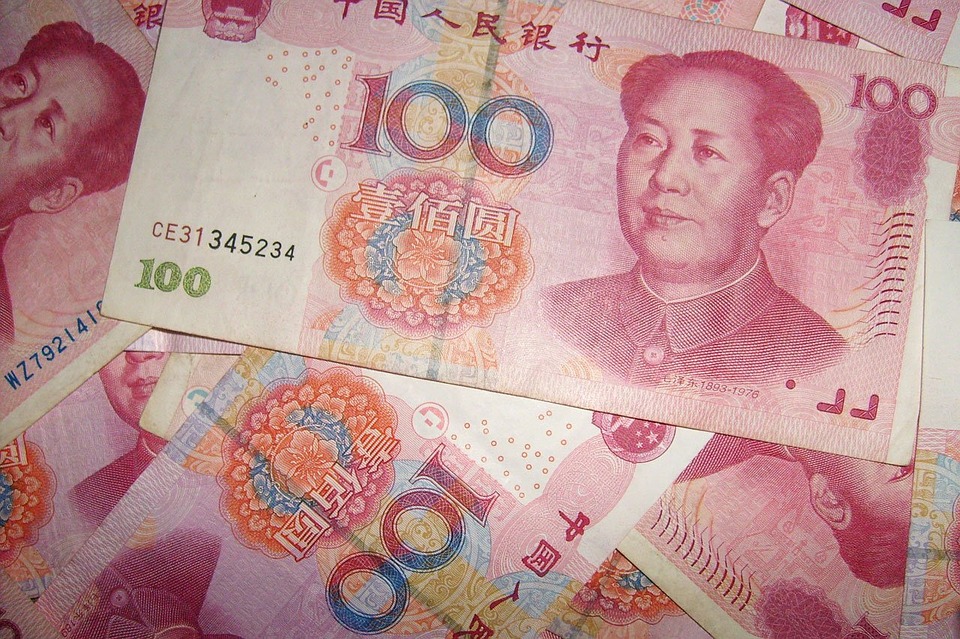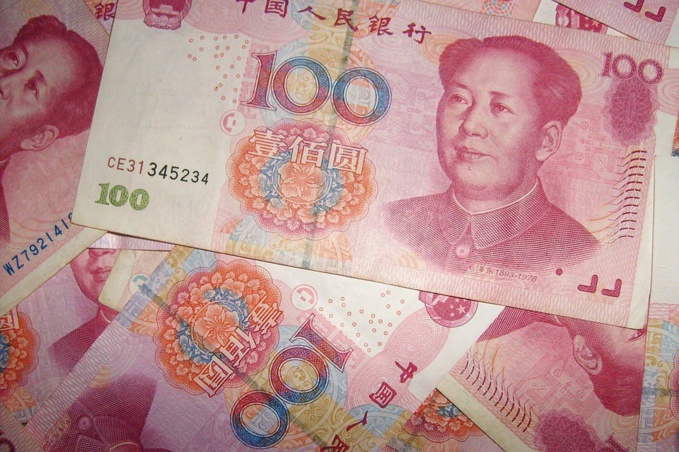Not only launch of oil futures in RMB serves as a hedging tool for Chinese companies. These contracts will support China's efforts to expand use of the renminbi in world trade, that is, accelerate de-dollarization. Experts expect that the role of the Chinese currency in the reserves of world securities may grow significantly.
China has long planned to expand the use of the renminbi, which is important given the growing tension, and now, apparently, this is an excellent time. Shanghai International Energy Exchange, a division of the Shanghai Futures Exchange, will be known under the acronym INE and will allow Chinese buyers to fix oil prices and pay in local currency. In addition, foreign traders will be allowed to invest, because the exchange is registered in the free trade zone of Shanghai.
Even Bloomberg admits that China's actions could have potential consequences for the US position as the issuer of the main currency in the oil market.
When will the bidding begin?
According to various sources, bidding will begin on January 18. Several rounds of testing have already been conducted, and all requirements for listing have been met. The State Council - the Government of China - gave its approval in December, thus eliminating one of the final regulatory obstacles.
The impetus to the emergence of oil futures in RMB occurred in 2017, when China outperformed the US as the world's largest oil importer.
Why is this important for China?
Trade in futures will allow controlling over the pricing of the main international reference varieties of oil, which is now based on dollars. Consolidation of oil contracts in RMB will promote the use of China's currency in world trade, and this is one of the key long-term goals of the country.
And China will benefit from having a benchmark that reflects the estimates of oil that are mainly consumed by local refineries and differ from those that underlie Western contracts.
How do oil futures work?
Futures contracts fix prices today for delivery later. Consumers use them to hedge price increases, and speculators use them to bet on prices. In 2017, contracts for oil futures in New York and London have surpassed the volume of physical trade by 23 times.
Crude oil is among the most actively traded goods with two key benchmark grades: West Texas Intermediate, or WTI, which is traded on the New York Mercantile Exchange, and Brent crude, which trades at ICE Futures Europe in London.
How much China is present in the commodity markets?
Nickel was the last major commodity, in which the auction was launched. This happened back in 2015, when six weeks trading in Shanghai surpassed the underlying futures on the London Metal Exchange, or LME. In China, speculators play a much larger role, increasing trading volumes, but making markets vulnerable to volatility.
In early 2016, the then head of the LME said that some Chinese traders do not even know what they are trading, because investors have collected everything from steel bars to iron ore. The sharp increase in prices was mitigated when China introduced more stringent rules of trade, higher fees and shorter trading hours.
Will foreigners buy Chinese oil futures?
This remains to be seen. Foreign oil producers and traders will need to swallow not only China's inclination for occasional market interventions, but also control over capital. Restrictions on the movement of money into and out of the country have been tightened over the past two years, after the devaluation of the yuan against the backdrop of a shock of capital flight in 2015 occurred. Such obstacles kept foreign investors far from the giant stock markets and bonds of China.
source: bloomberg.com
China has long planned to expand the use of the renminbi, which is important given the growing tension, and now, apparently, this is an excellent time. Shanghai International Energy Exchange, a division of the Shanghai Futures Exchange, will be known under the acronym INE and will allow Chinese buyers to fix oil prices and pay in local currency. In addition, foreign traders will be allowed to invest, because the exchange is registered in the free trade zone of Shanghai.
Even Bloomberg admits that China's actions could have potential consequences for the US position as the issuer of the main currency in the oil market.
When will the bidding begin?
According to various sources, bidding will begin on January 18. Several rounds of testing have already been conducted, and all requirements for listing have been met. The State Council - the Government of China - gave its approval in December, thus eliminating one of the final regulatory obstacles.
The impetus to the emergence of oil futures in RMB occurred in 2017, when China outperformed the US as the world's largest oil importer.
Why is this important for China?
Trade in futures will allow controlling over the pricing of the main international reference varieties of oil, which is now based on dollars. Consolidation of oil contracts in RMB will promote the use of China's currency in world trade, and this is one of the key long-term goals of the country.
And China will benefit from having a benchmark that reflects the estimates of oil that are mainly consumed by local refineries and differ from those that underlie Western contracts.
How do oil futures work?
Futures contracts fix prices today for delivery later. Consumers use them to hedge price increases, and speculators use them to bet on prices. In 2017, contracts for oil futures in New York and London have surpassed the volume of physical trade by 23 times.
Crude oil is among the most actively traded goods with two key benchmark grades: West Texas Intermediate, or WTI, which is traded on the New York Mercantile Exchange, and Brent crude, which trades at ICE Futures Europe in London.
How much China is present in the commodity markets?
Nickel was the last major commodity, in which the auction was launched. This happened back in 2015, when six weeks trading in Shanghai surpassed the underlying futures on the London Metal Exchange, or LME. In China, speculators play a much larger role, increasing trading volumes, but making markets vulnerable to volatility.
In early 2016, the then head of the LME said that some Chinese traders do not even know what they are trading, because investors have collected everything from steel bars to iron ore. The sharp increase in prices was mitigated when China introduced more stringent rules of trade, higher fees and shorter trading hours.
Will foreigners buy Chinese oil futures?
This remains to be seen. Foreign oil producers and traders will need to swallow not only China's inclination for occasional market interventions, but also control over capital. Restrictions on the movement of money into and out of the country have been tightened over the past two years, after the devaluation of the yuan against the backdrop of a shock of capital flight in 2015 occurred. Such obstacles kept foreign investors far from the giant stock markets and bonds of China.
source: bloomberg.com



















